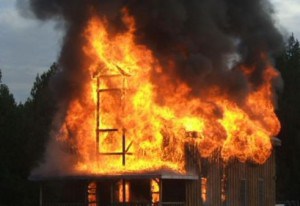An Antioch, Calif. woman on Social Security disability faced a substantial bill from AT&T for equipment lost in a recent house fire that left her with nothing but the clothes on her back, until the local media helped the company change its mind.
Her TV melted into a plastic mess, along with the box for AT&T. Now AT&T wants payment for the equipment. I have written them to inform them that everything, including the AT&T equipment, was destroyed in the fire. The company still wants to be paid for the destroyed parts. The landlord’s insurance did not cover tenant’s loss.
I want to let your readers know that if they lose their AT&T equipment due to a disaster beyond their control, they will have to pay for the equipment.
But once the San Jose Mercury News reached out to AT&T, they changed their mind.
AT&T spokesman John Britton:
“We are sorry to learn about the fire. We are glad our customer was able to get out of the burning house safely. We have adjusted the charges. Our policy is to be sensitive, listen to customers and to evaluate these claims on a case-by-case basis.”

AT&T would have dealt directly with the insurance company, if the customer kept and maintained renter’s insurance.
Most cable and phone companies maintain policies that require customers to compensate them for equipment either lost or damaged in natural disasters or fires. Problems arise most frequently when renters discover that whatever insurance a property owner maintains only covers damage or loss to the building itself. Renters need renter’s insurance to cover theft or damage to their property. The coverage is often overlooked, despite the fact it is very inexpensive.
Damaged cable television set top boxes can cost $300-500 or more each, no matter how old. Companies also routinely charge full price for damaged remote controls, cable modems, and company-supplied wireless routers.
Media attention regarding losses that were not the fault of customers often gets companies to waive fees, and some will issue blanket waivers where neighborhoods are affected by fire, flood, or tornadoes, but not always.
Insurance companies will usually handle matters directly with the cable, satellite, or phone company once the damaged equipment becomes part of an insurance claim. Some insurance policies will not cover the full replacement cost of equipment, but in such cases providers typically agree to accept the depreciated value to settle the matter.


 Subscribe
Subscribe
